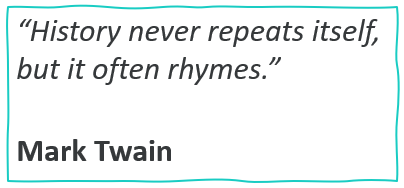 Two weeks ago it was Mexico, India and South Africa. Now it’s the EU’s turn as French President Emmanuel Macron called a snap election following a thrashing in the European parliamentary elections to Marine Le Pen’s far-right Rassemblement National. Though these are legislative elections and not for the Presidency (Macron’s term expires in 2027), this still sent ripples through European markets. Blue-chip stocks on Paris’s CAC 40 index logged their worst week of performance since March 2022. History suggests that such political instability tends to unsettle investors and this event was no exception, especially given Le Pen’s alleged close ties with the Kremlin
Two weeks ago it was Mexico, India and South Africa. Now it’s the EU’s turn as French President Emmanuel Macron called a snap election following a thrashing in the European parliamentary elections to Marine Le Pen’s far-right Rassemblement National. Though these are legislative elections and not for the Presidency (Macron’s term expires in 2027), this still sent ripples through European markets. Blue-chip stocks on Paris’s CAC 40 index logged their worst week of performance since March 2022. History suggests that such political instability tends to unsettle investors and this event was no exception, especially given Le Pen’s alleged close ties with the Kremlin
The growing political uncertainty in France, combined with the trajectory of public debt presents a very real possibility of a debt crisis. It’s not so well-known that French corporate debt is even bigger than the US as a proportion of GDP. If Le Pen wins and investors really start worrying about assets beyond government bonds – like banks and over-leveraged companies – France could find itself in a very tricky spot.
One to keep a close watch on as events unfold across the Channel.
In the UK however, to this point the general election has not scared the markets, on the contrary. Sometimes it is better to travel than arrive, so don’t be surprised if there’s some profit taking the days after the election.
It is possible that the result might scare the markets for a more prolonged period (e.g. if there is a Labour landslide on a scale which implies no effective opposition) but that is speculative. The biggest risks to UK markets remain beyond the UK, at least until the actual policies of the new Labour administration become clearer over the next 12 months.
In the last week however there was a rare glimmer of good news for the Tories as inflation hit the Bank of England’s 2% target in May for the first time since 2021. Yet beneath the surface things were not so rosy because core inflation – which strips out the more volatile stuff – stayed high at 3.5%.
JP Morgan said on Wednesday this might be “the final nail in the coffin for any hopes of a rate cut from the BoE tomorrow”.
As many expected, they were proved right yesterday with the BoE keeping interest rates unchanged. Some were hopeful that with the European Central Banks cut a few weeks ago, the door was open for Andrew Bailey to also jump ahead of the Fed in this cutting cycle, but it wasn’t to be.
Turning to the US, the S&P and Nasdaq racked up new record highs this week, largely thanks to the ongoing extraordinary performance of the Magnificent Seven, jointly accounting for 33% of the S&P. On Tuesday, Nvidia overtook Microsoft as the most valuable stock in the world ($3.33 trillion). This was just two weeks after it took the number 2 spot from Apple.
However, there’s something to bear in mind when looking at this valuation. The company is often called a chip manufacturer but that’s not entirely true. It designs the chips but doesn’t build them. The vast majority of Nvidia’s chips are made by Taiwan-based chip manufacturer TSMC. This reliance on a single supplier is always risky, especially to one that is under the shadow of a potential invasion by China.
Nonetheless, investors remain confident. As mentioned back in March, our central case would be, that after the Spring breather the US index would keep moving ahead over the Summer – a trend currently well underway. But the question remains: how long will the party last?
Historically an inverted yield curve has reliably predicted recessions. When short-term bond yields exceed long-term ones, it indicated that investors expect slower economic growth or a downturn. If the US escapes without a recession this time, it will defy the predictive power of this indicator like never before.
Finally turning to India, as we saw in the last Friday note Narendra Modi’s BJP fell well short of a majority in the recent elections, and the market tanked around 8%. It has since more than recovered, settling at new record highs, but bringing with it substantial volatility as the new government takes shape.
Modi has been keen to demonstrate that there would be no change in who called the shots, however we can’t ignore the likely clashes of interest and policies. It’s a complex situation with a coalition, a revived opposition and a base that’s feeling let down.
To make some sense of this, in case you haven’t seen already, we featured a guest blog on FundExpert from the fund managers Matthews Asia: "Making Sense Of India's Election Shock". Do take a read.
There is one Dynamic Portfolio updated this month – the Global Dynamic Portfolio. Though not one of our star performing Dynamic Portfolios, it had an excellent 6 months and since inception is up over 1,178% compared to the FTSE World Index up 490%.
Have a lovely weekend. I’ll be routing for Belgium in the footy tomorrow having picked them out in the sweepstake!
Joe